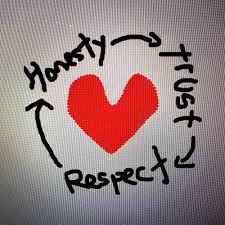As parent with children who have been involved in competitive sports from an early age and as an elementary school principal I have had the chance to observe numerous teachers with their students, coaches with their players and parents with their children. I see many parallels between teaching, coaching and parenting. Teachers are held to very high standards and have a regulatory body that oversees their behaviour, ethics and effectiveness as a teacher. They have training, professional learning, mentoring, formal observations and supports if required.
Coaches are as much a part of the growth and development of our youth as teachers and parents. For some children they play the role of mentor, caretaker, dad, mom, teacher, nurse and counsellor. Competitive athletes spend as much time with their coaches as they do their teachers and parents. Who supports coaches in their growth and development? Who mentors them? Who provides feedback? What professional development do they receive? What supports are available for them? What expectations do we have of them?
Parents are the first teachers and coaches and have taken on the enormous responsibility of raising a child into a healthy, happy and successful individual.
Here are some of the lessons I have learned from behind the glass.
1. Yelling does not work. It creates an unsafe atmosphere in which children are afraid to take risks and make mistakes.
2. Not all children can handle feedback or correction in the moment. Some individuals need space and time to regulate their emotions before they are open and ready to receive feedback.
3. Mixed messages are confusing. Patting them on the back on minute and getting in their faces the next makes them uncertain of what you want from them and what they can do to improve their performance. It creates anxiety, stress, fear and uncertainty.
4.Don’t punish them for mistakes. Mistakes are an important part of learning and should be celebrated as learning opportunities.
5. Don’t make them feel worthless by telling them they suck, are not good enough, can’t do something, need to try harder or will never amount to anything. They may just prove you right.
6. Don’t set the bar low and pigeon hole them as a certain type of student or a specific type of player. Take the time to build on their strengths and support their areas for growth.
7.Model the behaviour you expect from them. Be respectful, have integrity, communicate openly, be transparent about your expectations, be firm, be fair, be honest and be kind.
8. Take the time to get know them. What do they like, what do they need, how do they learn best, who do they work with the best, what motivates them, what sustains their attention? Find a way to get the best out of them each and every day!
You might think that I am stating the obvious and that teachers,coaches, and parents should know this already but the reality is that some of them do not. In full disclosure and transparency I have learned some of these lessons the hard way myself.
Youth are our most precious resource and as such we need to work together to do everything in our power to nurture and support them. We need to take a holistic view of the child and work to create a healthy environment in which they can thrive. In order to do that we need to have teachers, coaches and parents that are committed to insuring that each child has the opportunity for success.



